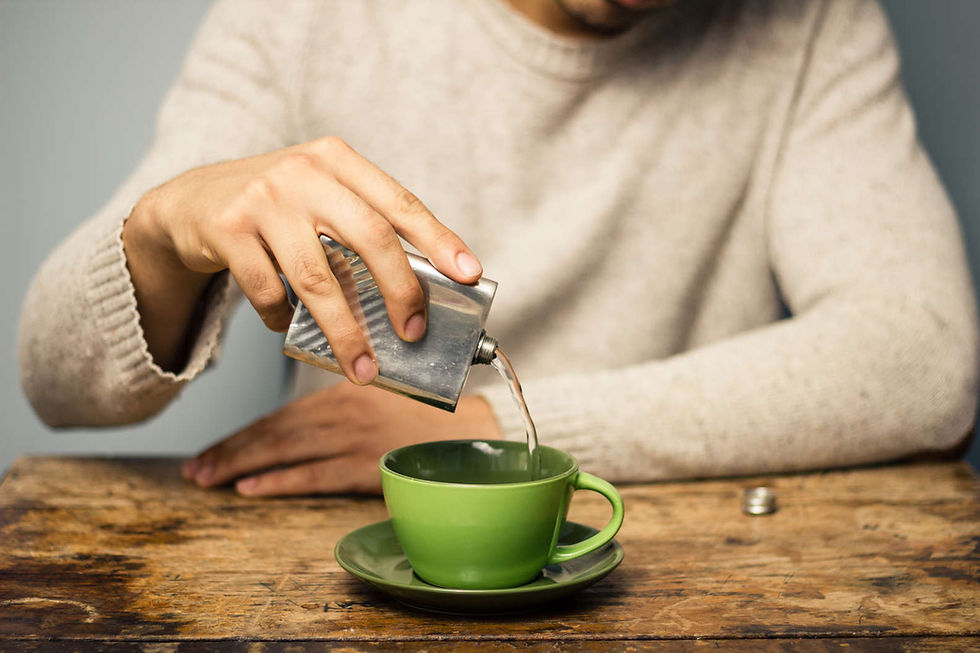The Rising Global Alcoholic Tea Market: Kenyan Loose Tea as a Key Raw Material
- Christine Simon
- Jan 13, 2021
- 2 min read
Updated: Apr 16, 2024

Innovative brand creators and manufacturers are adapting to changing demographic needs across various industries.
Tea stands as the most consumed beverage globally, excluding water. While the precise global alcohol consumption landscape can be elusive, beer ranks as the third most popular drink, followed by wine and the prevalent white spirit, Vodka.
As consumer preferences evolve, there's a growing trend towards Ready-To-Drink (RTD) alcoholic beverages infused with tea. This trend capitalises on consumers' desire for innovative flavours and natural ingredients.

Millennials and Gen Z’s, exhibit a more health-conscious approach to alcohol consumption, prioritising socialisation and flavour experimentation over excessive drinking.
The emergence of tea-infused alcoholic beverages, particularly in the US market with some presence in Canada, Europe, and Asia, caters to this evolving consumer demand. Brands are investing in Research & Development to craft unique alcoholic takes on tea-based drinks, such as cold brews, tea infused wine, flavoured malt beverages and sophisticated blends of fine botanicals and exotic teas.
The slightly more established companies are now expanding their geographical base and product portfolios to increase popularity and a competitive edge in the market.

For brand messages in support of healthier lifestyles, the added benefit of using tea leaves is the unique flavour they can add to tea-infused cocktails, flavoured malt beverages and tea enriched distilled drinks without the consequence of artificial flavouring.



Kenyan tea, renowned for its rich and robust taste, is particularly favoured in crafting specialty beverages, complementing dark beers and American pale ales.
For flavoured malt beverages, "the familiar taste of brewed tea has an appeal that has won over many non-beer drinkers, resulting in an increase in popularity of this specialty category," says Dave Elliott, Alexander Gourmet’s Founder.
He further described Kenyan tea as "a rich robust tea that enhances a variety of dark, strong, or highly hopped beers and American pale ales.
While alcoholic beverages cannot claim health benefits, tea-infused options provide a flavourful substitute for sugary mixers.
Leveraging indigenous Kenyan teas and flavours can differentiate tea-based drinks in the competitive market, offering consumers natural and globally-inspired flavour profiles.

As brands adapt to the preferences of Millennials and Gen Z, exploring new flavour profiles with premium Kenyan loose tea presents an opportunity to tap into emerging markets and meet evolving consumer demands.
Get in touch with us for premium raw materials and secure supply chains to innovate with Kenyan tea in your alcoholic brew formulations, driving growth in an ever-changing consumer landscape.

Comments